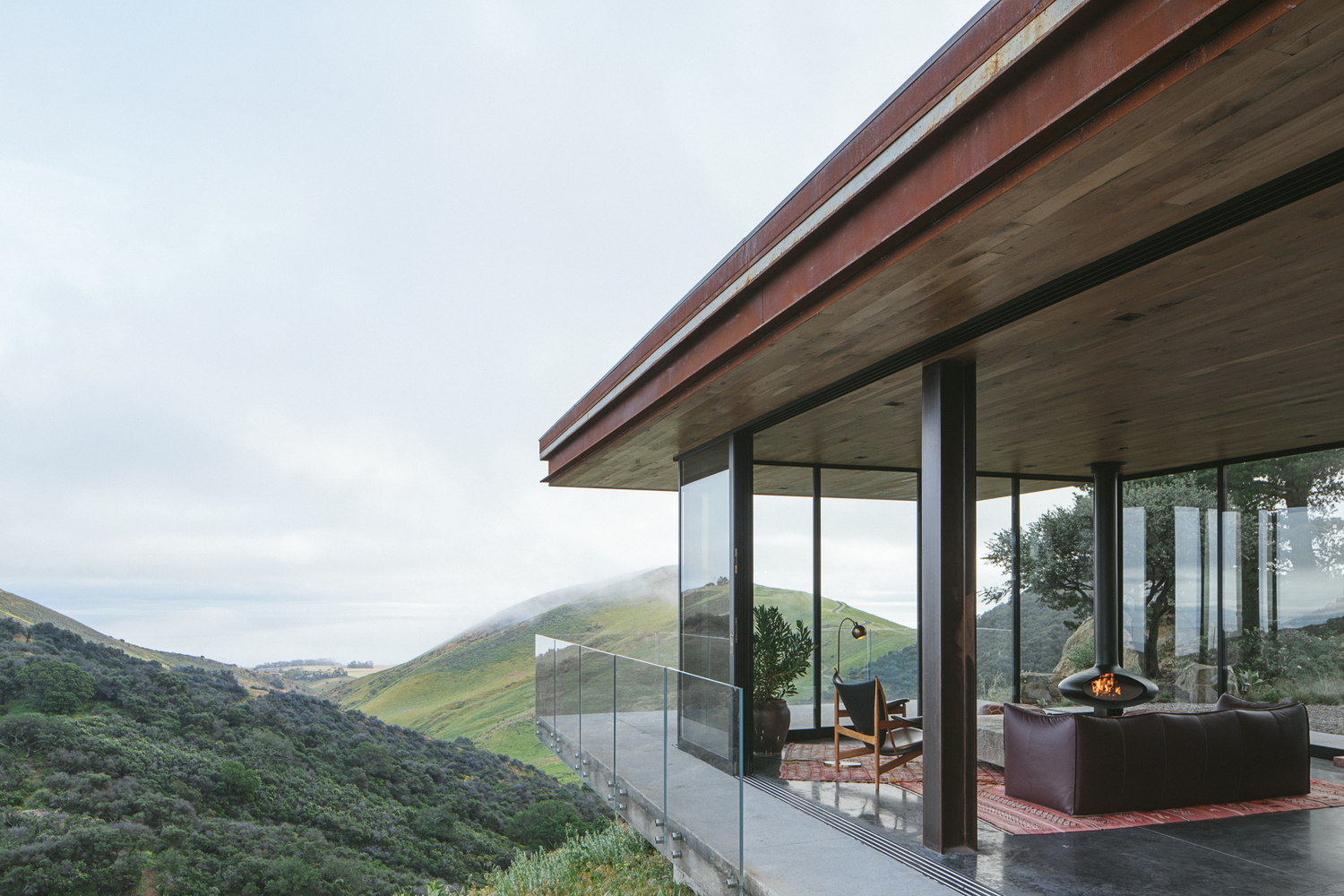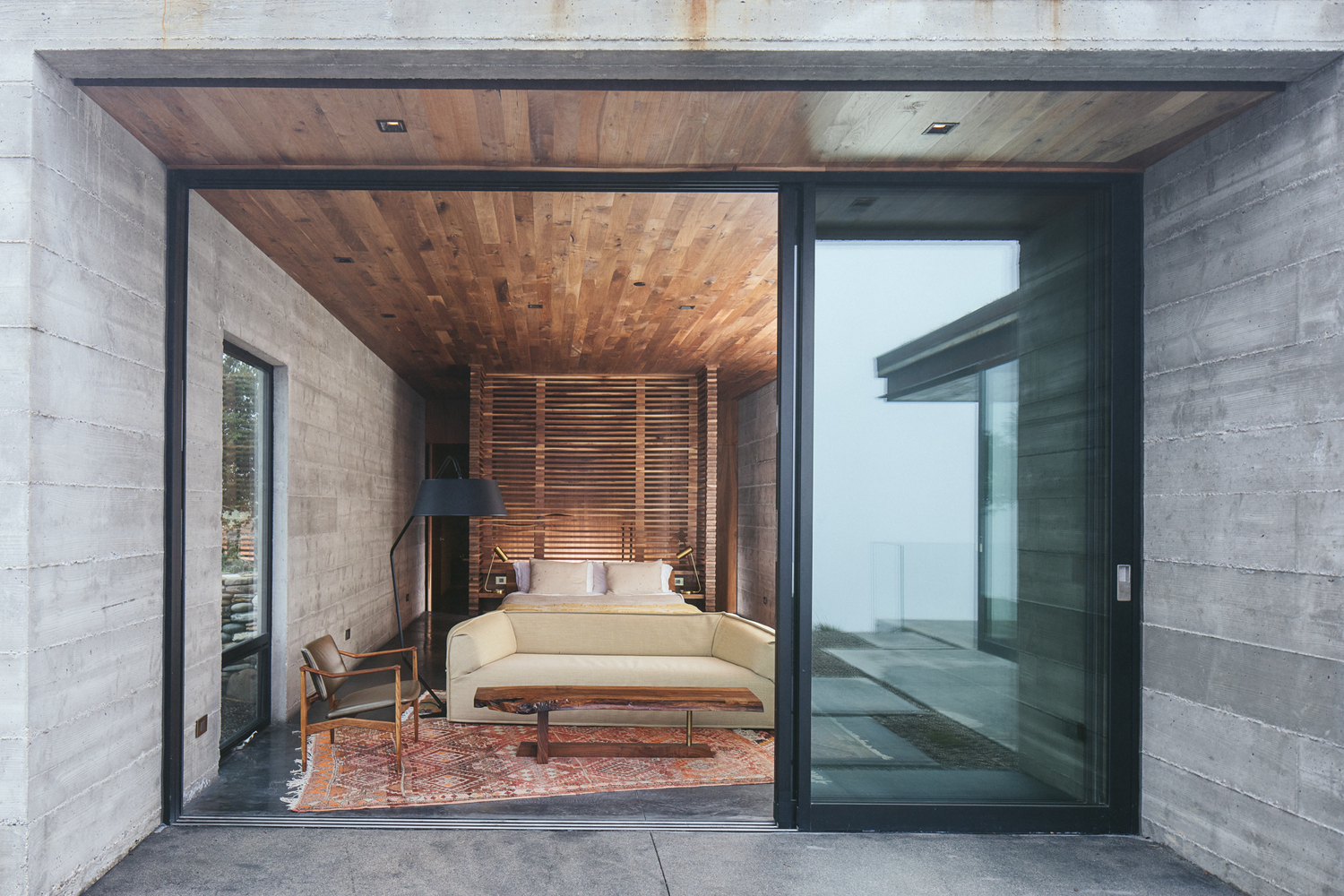Located on one of the last remaining undeveloped coastal areas in California, this modern guest house resides on a wildlife preserve; exemplifying a successful balance of residential development and ecological preservation. Nestled into a steep hillside, the residence was designed with low visual and environmental impact on the surrounding landscape. Disguised by a low profile and green roof, the home itself invites sweeping (nearly 360 degree) views of the Pacific Ocean and surrounding rolling hills, through a generous amount of sliding glass and expansive decks, which cantilever over the foundation’s steep rock face.


A high level of sensitivity to environmental impacts was exercised throughout all phases of design and construction. Anacapa and Willson Design employed green building practices, resulting in sustainable systems and material selection.


The guest house, as well as the owner’s nearby main residence, are completely off-grid out of necessity, there is no electricity available in this remote area. The home is 100% powered by a photovoltaic energy system. LED lighting and low-usage appliances were selected to reduce energy demands and usage.
The home has a private well and water treatment system; wastewater is directed to a septic tank and dry well. A combination of radiant floor heating, cross ventilation from the abundance of operable sliding glass, and an insulating green roof are used to regulate interior temperatures. A green roof helps the home blend into its landscape, while conserving water.
The house is elemental, made of materials that integrate seamlessly with the landscape and that will weather and patina naturally over time. A simple material palette of steel, concrete and glass were selected, while rich walnut accents and custom fixtures and furnishings by Jessica Helgerson Interior Design add warmth and character to the space.The design includes a detached garage, which is also discretely built into the hillside.





Photography by Erin Feinblatt
